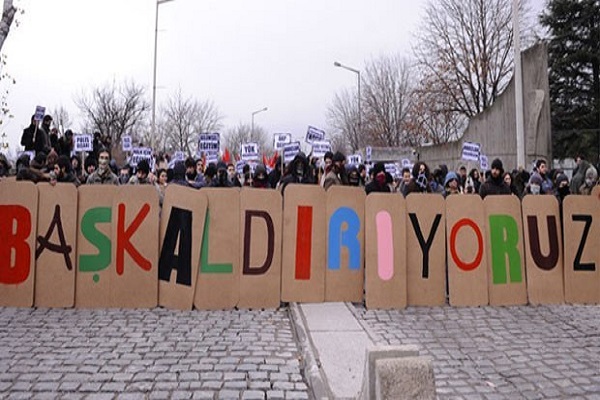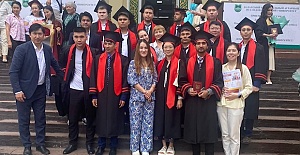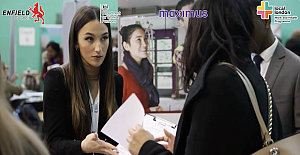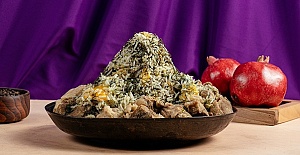Reproduction of the Reality through December 18 Middle East Technical University (METU) Riot
As one of the leading philosophical figures of the twentieth century, Michel Foucault transformed his methodological approach from 1970s onwards. He started to use genealogy, as named by Nietzsche, in his studies which focus on the impact of power on discourse. Why Foucault switched from archaeology, which is a linguistic-historical method analyzing discourse systems to discover how the systems of thought has been established through historical processes; to genealogy[1], that focuses on the construction process of the discourse systems instead of the discourse systems themselves, was that he realized that the popular saying “knowledge is power” can be reversed and power might also be knowledge so that these two concepts could not be separated[2]. In his book translated to English with the title “Discipline and Punish: The Birth of the Prison”[3], where he first used his genealogical method, Foucault persistently emphasized a fact: The ones those have the power could create the knowledge and change the truth if they wanted. In line with this, in his book “Archaeology of Knowledge” dated 1972, he stated: “…in every society the production of discourse is at once controlled, selected, organized and redistributed according to a certain number of procedures, whose role is to avert its powers and its dangers…”[4]. In fact, this view had already been described before Foucault by Georg Orwell in the dystopia that he created in his book “1984”[5]. In the novel, from the viewpoint of Winston Smith working in the Ministry of Truth in Oceania country, we see how things change suddenly. When there is a war against Eurasia and East Asia is an ally, then in a day Eurasia becomes the eternal ally and East Asia becomes the absolute enemy. Even the history is written from the very beginning and the new knowledge becomes the new truth. The aim of this article is not to make a genealogical analysis but to exemplify the reproduction of the truth by power underlined both by Foucault while switching from archaeology to genealogy and by Orwell represented in his dystopia, with a recent case from Turkey through a short media scan.
Clashes between students and the police forces that took place in Middle East Technical University (METU) campus in Ankara on December 18, 2012 and the following process is a good example in this sense. Statements from the Prime Minister (PM) Recep Tayyip Erdoğan after the clashes; and the news reports and newspaper articles after the statements of the PM created an impeccable example to see how power can transform the knowledge in a short period of time. To summarize the story; everything started with the announcement of the visit of Recep Tayyip Erdoğan to METU for the ceremony for the launch of national Göktürk-2 satellite from China. PM’s visit to METU was heard late in the evening on December, 17 and students rapidly organized a protest. Meanwhile, starting from the early morning a serious number of police forces were stored in the METU campus[6]. Few hours before the PM’s arrival to campus, protesters started to walk from a far point of the campus to the building in which the ceremony would be held. It was approximately one km to the building where police started to throw tear gas and water to the protester group consisted of students and academicians who had not showed any signs of violence until this moment[7]. Police intervention that continued until the late hours filled classrooms, labs even the kindergarten, houses and every corner of the campus with tear gas. Many students were seriously pounded up by the policemen. However, no one was taken into custody. (A first hand narration of the incident can be read from the article by Prof. Ferdan Ergut (METU, Department of History) in Solfasol in Turkish[8]).
As reported by the people involved in the protest and as can be seen from the videos by everyone, during 4-5 hours of clashes there were not any Molotov cocktails, burning tires or iron marbles, as the police told it in the following days. When we have a look at the news that was written on the same day, even in the newspapers that are known to be close to the government such as Sabah or Yeni Şafak, the clashes were narrated with a more objective manner compared to the upcoming days: “After the police intervention with gas and water cannons, the campus was messed. The protester group threw stones and pre-prepared bottles to the policemen.”[9]. Most probably because of the fact that protests against the PM or other government members and high levels of police violence to the protesters became very usual in recent years, the press did not cover the riot widely. However, there were still some articles telling about the clashes. Even, Ali Karahasanoğlu, an Akit columnist who positioned himself so opposite to the METU students that he compared the riot with Sivas massacre in his later article[10] on December 26, narrated the riot as: “…They throw stones…They throw bottles…They throw whatever they find on the ground…İmam-Hatip graduate Prime Minister launches the first national observation satellite to the space. Anti-imperialist youngsters in METU throw rubbish that they can find.”[11] in his article on December 19, 2012. On the 20th of December, Hasan Celal Güzel from Sabah criticized METU students as follows: “Ramshackle remains of pre-1980 Marxists, a few ‘social fascists’, attack security officers with stones and sticks to protest the Prime Minister”[12]. In the narration, there is nothing other than stones, sticks and bottles until this point. However, things change with the statements of the PM in the evening of December 21, the day when 12 students were taken into custody related to the riot. Prime Minister joined a mutual broadcast by NTV and STAR channels and said: “People came to the campus with Molotovs in their backpacks, they fired these in the riot and the police called for additional support. What kind of a university are you? If these are the students that you raise, Turkey is ruined then. Instead of being proud with the launch of our satellite, they fired tires and protested”[13]. There were long video shots of the riot since the first day. Although, most of the videos were mounted by the police it was not possible to see any Molotov cocktails or burning tires in them. Molotov cocktails and burned tires were also lacking in the prosecution started with the custodies in December 21. However, the Prime Minister told “his story” of the incident just one time and it turned into a fact. Students were released next day but Molotov cocktails and burning tires were already started to be discussed in the television shows. On December 23, Sunday evening, Bülent Arınç joined Perspektif in Habertürk channel and referred to Molotov cocktails and tires several times[14]. It was possible to see the Molotov cocktail and tire claims in the articles next day. İbrahim Öztürk from Zaman, in his article titled “Ridiculous University, Clownish Professor” said: “Every logistics from Molotov to car tires to be fired were prepared in the campus”[15]. Consistently calling the students in the following days as the ones that throw Molotovs to police and the ones that burned tires, he was one of the biggest contributors to this knowledge creation process. Similarly, Gülay Göktürk from Bugün told about the students as “the ones that set fire in METU with Molotov cocktails and car tires”[16]. In the meantime, Presidents of different universities unexpectedly published notices on the incidents one by one that criticize METU Presidency and students. The President of the İstanbul University became one of the leading figures that kept Prime Minister’s claims in circulation saying that: “…we were deeply worried by the coming up of a group of students to the fore with stones, sticks, burning tires and Molotov cocktails.”[17]. Molotov cocktails and burning tires became the most popular words of the declarations of the University Senates and the TV shows in which there are not any people from METU. By the way, Prime Minister saw that his deceptive claims about Molotov cocktails and burning tires were accepted and added iron marbles to them: “…come with slings, with iron marbles, then fire tires, attack with Molotovs; then be uncomfortable about the standing of the security forces there.”[18]. Camera images as the most concrete evidences could not be as persuasive as PM’s words. The ones who were circulating the claims of the PM in TV discussions started to mumble when they were reminded about the video shots but the warnings about the reality remained weak most of the time. On the evening of December 25, Teke Tek[19], a TV discussion show in Habertürk channel presented by Fatih Altaylı, there was İbrahim Öztürk again. For two hours, he talked about Molotov cocktails, burning tires and iron marbles thrown by slings. Fatih Altaylı also joined him. Towards the end of the program, METU “Eğitim-Sen” trade union workplace representative Mehmet Mutlu went live. When he asked if there were any Molotov cocktails in the videos, they started to say that actually it was like students were sending tear gas bombs back to the police. But the program ended soon. The next day, this time in CNN Türk[20], Tuğrul Özşengül, who is an instructor in the Police Academy, tried to comment on the riots with similar claims. Fortunately, in this instance, there were two professors from METU who witnessed the incidents. When his claims were refuted, Police Academy instructor first tried to escape with saying that there were some other camera shots. Then, he digressed with questioning the reasons of METU students to protest Erdoğan and blaming them to be Asad supporters. On the evening of December 27, Bülent Arınç was on 32. Gün on Channel D and he did not wait to repeat the claims about iron marbles: “…if you try to throw iron marbles, if you try to burn something with barrels, especially if you cover your face and attack with Molotov and flammable materials; police comes in for sure and tries to secure people there.”[21]
Starting from the Prime Minister, when government officials begin talking, Molotov cocktails, and burned tires, iron marbles all become facts one by one. And, there is no other option left than to believe for the ones who follow the issue from the mass media. So that, even Elif Şafak who tried to position herself by METU students said in her article in Habertürk on December 27: “Of course, it is totally wrong that some students (not all of them) throw Molotov cocktails.”[22]. In this way, it became possible to witness an example of how power can create knowledge and reproduce the reality in a ten days time even if there are concrete opposite evidences of minute-by-minute video shots.
All these show why Foucault was right to consistently use the concepts of power and knowledge together after he switched his methodology to genealogy. Even though the facts occur in front of us, power holders can shape it as they like and it does not just occur in dystopias in which majority believe in the constructed knowledge by power.
Caner Özdemir, Middle Eastern Technical University
Özdemir, Caner (May, 2013), “Reproduction of the Reality through December, 18 Middle East Technical University (METU) Riot”, Vol. II, Issue 3, pp.55-59, Centre for Policy Analysis and Research on Turkey (ResearchTurkey), London, ResearchTurkey. (http://researchturkey.org/?p=3289)



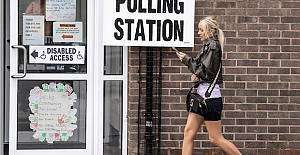 Advice for Enfield residents ahead of the General Election
Advice for Enfield residents ahead of the General Election Sunak promises tax cuts, economic stability, Conservative Party election manifesto
Sunak promises tax cuts, economic stability, Conservative Party election manifesto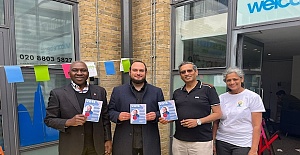 Ertan Karpazli, an independent MP candidate for the Enfield North constituency
Ertan Karpazli, an independent MP candidate for the Enfield North constituency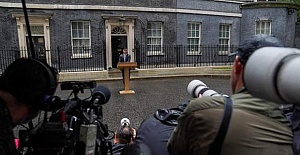 Rishi Sunak announces a general election in a statement outside Downing Street
Rishi Sunak announces a general election in a statement outside Downing Street Residents of Spanish island of Mallorca launch initiative to thank tourists amid protests over mass tourism
Residents of Spanish island of Mallorca launch initiative to thank tourists amid protests over mass tourism Srebrenica Remembered, Lessons for Justice and Peace! YEE London held a reflective event
Srebrenica Remembered, Lessons for Justice and Peace! YEE London held a reflective event British Premier Keir Starmer to reset UK-EU relations with high-profile meetings
British Premier Keir Starmer to reset UK-EU relations with high-profile meetings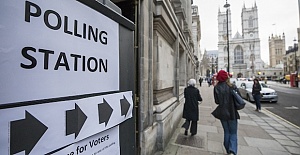 Voters head to polls for UK general election
Voters head to polls for UK general election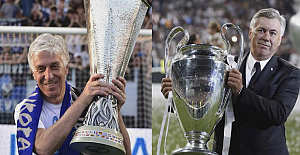 The Swiss official will take charge of the match between Real Madrid and Atalanta in Warsaw
The Swiss official will take charge of the match between Real Madrid and Atalanta in Warsaw Applications are now open for Walking and Cycling Grants London until 9 September 2024
Applications are now open for Walking and Cycling Grants London until 9 September 2024  Two Circles also appointed as exclusive media sales agency for UEFA Women’s Champions League
Two Circles also appointed as exclusive media sales agency for UEFA Women’s Champions League  England manager Gareth Southgate has resigned two days after defeat by Spain
England manager Gareth Southgate has resigned two days after defeat by Spain Joyce and Snell's planning application gets stamp of approval
Joyce and Snell's planning application gets stamp of approval The amount of bounce back loans fully repaid is just %13
The amount of bounce back loans fully repaid is just %13 Petrol prices higher than they should be, says RAC
Petrol prices higher than they should be, says RAC UEFA and Mastercard renew UEFA Champions League partnership
UEFA and Mastercard renew UEFA Champions League partnership




